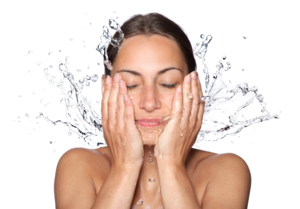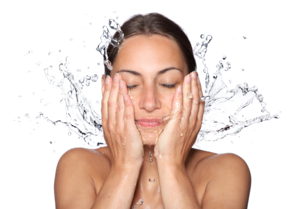
 WHEN YOU SPEND OVER $150(Afterpay not offered on cosmetic nurse treatments)
WHEN YOU SPEND OVER $150(Afterpay not offered on cosmetic nurse treatments)
 WHEN YOU SPEND OVER $150(Afterpay not offered on cosmetic nurse treatments)
WHEN YOU SPEND OVER $150(Afterpay not offered on cosmetic nurse treatments)

Written by Roisin Mc Dermott , Educator and Dermal Therapist for the Australasian Academy of Cosmetic Dermal Science

Recently some of the most popular of the cosmetic skincare brands have started to include Hyaluronic acid in their formulations, meaning that no matter your budget, you can have this in your routine. This is a good thing, of course, but you should know when to use it, when not to use it and which types of hyaluronic acid (HA) do what.
In the simplest of terms, hyaluronic acid is an ingredient that pulls moisture to it. The term is known as “humectant”. Humectants are a key type of hydrating ingredient that you will find in almost most skincare products – glycerine is a humectant. Hyaluronic acid can bind more than 1000x its weight in water to it. When many see the word “acid”, they think exfoliating acid. Hyaluronic acid is not an exfoliating acid so it’s not going to help you to slough off dead skin cells.
Hyaluronic acid is a natural ingredient in the sense that it naturally exists in the skin already. Hyaluronic acid is made throughout the body and in the dermis, and it is part of several processes when it comes to the skin – obviously, it’s important for hydration but it is also involved with wound healing (tissue repair). As we age, our rate of HA production decreases and decreases so our skin struggles to hydrate itself as easily as it used to. Therefore, it’s considered to be an anti-ageing ingredient, even though it’s beneficial for all ages.
Topical hyaluronic acid, due to its moisture-pulling capabilities, can give the skin back moisture. Realistically, if your skin is not at peak health (ie. you’re not using a routine that replenishes your barrier, protects your skin from pollution and light-related damage, you’re not getting enough omegas internally etc.), your skin may not be holding enough of its own moisture. If you’ve got the right type of hyaluronic acid in a serum, it can penetrate the skin and hydrate it at lower layers which is something that moisturisers can’t do due to the size of their molecules.
Other forms of hyaluronic acid can plump up the uppermost layers of the skin, giving you the gift of instant youth.
Therefore, it is known for its use in fillers! It also works as an antioxidant to protect your skin from the free radical damage that can age the skin faster.
As I said, we can pop down to our local supermarkets and get something with hyaluronic acid in it. However, there are different forms that do different things, and some may be considered more beneficial than others.
As it is a hydration-blaster, it immediately eliminates dehydration.
As a non-oily hydrator, it does wonders as a hydrating product for those with oily or spot-prone skin as it doesn’t clog pores and doesn’t leave a greasy layer on the skin.
Hyaluronic acid, specifically high molecular weight hyaluronic acid, gives mature skin back the bounce and elasticity it may have lost naturally. Moisture slightly swells the uppermost layers of the skin so fine lines and wrinkles will look instantaneously less noticeable.
If you like to know more about products containing HA, speak to one of our students at Aspire studying the Advanced Diploma of Cosmetic Dermal Science, Graduate Diploma of Dermal Science or Graduate Diploma of Cosmetic Nursing and Injectables.
To make an appointment at one of the Aspire Training Clinics, please click HERE.